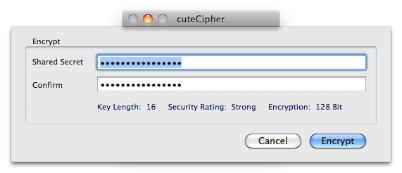By Greg Mills
I read an interesting article in “Barron’s” on-line that laid out a scenario where the Google Android operating system eats an Apple cell phone OS for lunch.
I see his points, but come to another conclusion. Mark Veverka fails to give Apple due credit. See http://macosg.me/2/i9 .
The facts are clear: if there is an Apple iPhone killer out there, it is the Google Android. Sales show that Android is overtaking the iPhone. The underlying reasons are that at least 12 cell phone manufacturers are building phones that run Android.
One element of the Android success is multiple cell companies offer Android phones. That part of the problem will be solved when Apple gets past the AT&T exclusive and offers the iPhone more broadly. Conservative estimates of immediate sales in the millions, right out of the box, can’t be lost on the folks at Apple.
Google has also been able to begin to amass a formidable inventory of apps that run on Android. When Apple launched the iPhone, few people expected it do as well as it did or revolutionize an industry. That is history — and thinking for one second Apple is sitting on its laurels is foolishness.
Verveka makes the point that the cloud will change everything and that Google is better able to do that than Apple. I beg to disagree. There is a server farm being built in North Carolina with a fruity logo on the sign. The server farm under construction could likely store the national achieve and have room left over. Why would Apple build such a facility?
The article makes it seem Apple is stuck on a single mode of offering music online and is unable to make changes. That seems a bit unlikely to me. I seem to recall that Apple bought a music streaming company a while back. I wonder why they would do that?
Another big advantage Apple has is the conglomerate of the Mac, iPad, iPhone and iPod. With iTunes for both Mac and Windows being well installed, Android has a long way to go in supplanting Apple.
While licensing issues with both music and video creators has always been a problematic issue, far more daunting than the hardware to offer online streaming. I think Steve Job’s clout is up to twisting a few arms to accomplish a go to market plan that is fair to us users and fair to content providers. Key is a way to defeat pirates of protected data.
When you rip or download copyrighted material with the protection codes defeated, keeping that on a DVD or hard drive is undetectable, once it is local. A smart cloud synchronization system on the other hand, could check data streams being uploaded to a person’s little space on the cloud and note protected material is being stored.
Then the pirated data could be wiped with a curt message sent to the user, so the Cloud is innocent of storing pirated materials. That would help me feel good about licensing copyrighted material to that cloud provider.
Another important element of data stream synchronization is consolidation of identical data streams. In other words, lets say your kid prevails upon you to buy the Pixar’s movie “Up” and you store it on the cloud or actually buy it on the cloud. Why not just electronically make note that you have bought the right to steam “Up” anytime you want to see it (which, with kids, might be kind of often).
There would be only one copy of “Up” on the entire cloud with thousands of users coded to be able to see it, on demand. However, a pirated version of “Up” would disappear if uploaded to the Cloud. The result is that it would take less memory and hardware to provide service to more people, at a lower cost and defeat piracy to boot. Cool! Doesn’t that sound Apple-ish to you? This also supports the iPad for reliance on the web for content. Think of the BIG PICTURE. Digital downloads of everything related to electronic data is coming.
I think an iTunes cloud type alternative for music, books, magazines, apps, third party software and other content steaming from the new Apple server farm is likely in the very near future. Remember Apple was the first to successfully put the music industry online. The key was actual copyright protection.
(Greg Mills is currently a Faux Artist in Kansas City. Formerly a new product R&D man for the paint sundry market, he holds 11 US patents. He’s working on a solar energy startup using a patent pending process of turning waste dual pane glass into thermal solar panels used to heat water. Married, with one daughter still at home, Greg writes for intellectual web sites and Mac related issues. See Greg’s web sites at http://www.gregmills.info . He can be emailed at gregmills@mac.com)



